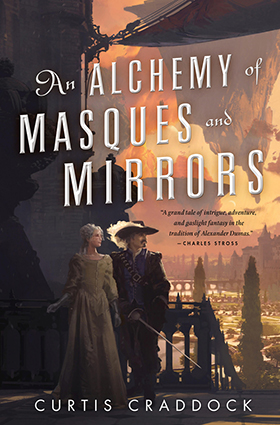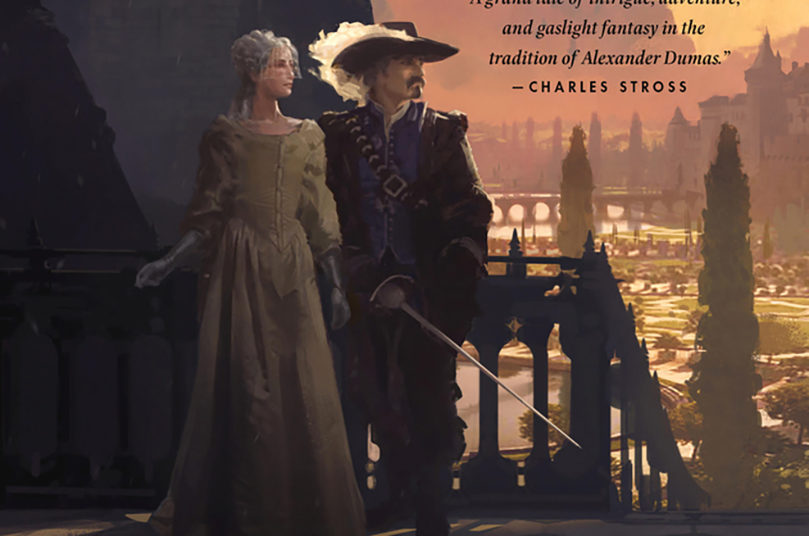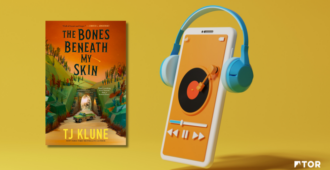 Written by Curtis Craddock
Written by Curtis Craddock
I am.
It’s the shortest story in the English language. It’s really the root of all stories and, by extension, the act of being human.
Biologists, archaeologists, and anthropologists like to argue about what makes humans people. How did we progress from planting crops to build cities, go to the moon, and build smartphones?
I put my money on storytelling.
A lot of biology underpins storytelling. There’s the evolution of the tongue and the palate. The adaptation of the brain and the developing capacity for language. But humans aren’t the only creatures to communicate with sound and symbol. Bees apparently do a bit of geometry in their hive dances, and whales have dialects of calls.
Yet even these sophisticated methods of communication lack the essential element of a constructed reality, the understanding that something can be true without being real. Ask anyone who has ever read the Lord of the Rings who Frodo is, and they will be able to describe him and his adventures in some detail, and will have opinions on whether his actions were good or bad, reasonable or not. At the same time the reader aware that the story is constructed purely from imagination and not a factual accounting of anything in the ordinary world. Even animals that are known to lie such as chimps and gorillas don’t seem to construct a persistent fictional narrative.
Thus while humans may not be the only ones with at least a rudiment of language, we do seem to be the only ones to tell stories, to communicate about things that never happened and never will, to dislocate ourselves in space and time, or to picture the world from behind another person’s eyes.
To be sure, the habit of spinning yarns probably developed over an extended period of time. It required the concurrent development of unique cognitive and physiological capacities, so there was no first storyteller in the same way there was no first dog. Humans just messed around with wolves for a few dozen generations, culling the undesirable and breeding the useful, until what had been recognizably a wolf was now recognizably not a wolf without any pup in the progression being a different species than its parents.
At some point, or rather span of points, the human mind expanded into something much larger and deeper, like a fresh water river emptying into the great saline sea. The abstract space of imagination gathered unto itself the greatest share of mental resources, burning precious, hard won calories, it provided us with an inner voice, a personal narrative, explaining the world and the mind’s place in it. Our ability to invent the world rises above the expectations of experience.
Scientists from disciplines as far apart as anthropology and neuroanatomy have speculated that this internal voice may have been perceived as an external intrusion, the voices of spirits or gods.
Regardless of how the source was perceived, humans now had storytellers inside their skulls. Experiences, emotions, and reason were translated into words, and every person became the narrator, however unreliable, of his or her own life.
So why is it so important to have a narrator? What’s the big deal with narration?
Narration is everything.
When I come home at night, after a hard day’s slog, I walk into my house, sit down on my couch, and get mugged by my dogs: two small, furry, lap-seeking missiles.
If you visualized that, it has become part of your story.
But the analysis goes deeper than that. How do I know this is my house? Yes, there’s a record of the purchase in my filing cabinet, but I haven’t looked at it in years. Nor am I merely expressing instinctive territoriality. I didn’t go around with my trousers down marking out a boundary. I know it’s my house because of the story I tell myself about it. My friends and family know it’s my house because of the story I told them. By and large, nobody questions the story of my house. Nobody demands to see the paperwork proving my ownership. More broadly, other people who don’t even know me understand the backstory of our civilization, and are aware of the common trope of home ownership.
In fact, if you back up far enough, it becomes clear that society itself is a narrative, something we collectively imagined into existence. Laws, customs, mores, and borders are things only humans perceive and only by virtue of their narrative we’ve built up inside our skulls. There is nothing outside of us to supply those concepts, no force compelling us to this end.
Terry Pratchett expressed it succinctly in Hogfather, when Death says, “… take the universe and grind it down to the finest powder and sieve it through the finest sieve and then show me one atom of justice, one molecule of mercy.”
We impose on ourselves by means of a narrative what it means to be good or bad, morally right or wrong, ethically acceptable or not.
We humans are the stories we tell ourselves. More to the point, we wouldn’t be fully human without them.
Order Your Copy
Follow Curtis Craddock on Twitter, on Facebook, and on his website.













It is interesting that you mention Pratchett, he introduces a similar idea in The Science of Discworld and devotes the entirety of The Science of DIscworld II to the topic. I highly recommend both books. He writes “The anthropologist got it wrong when they named our species Homo sapiens (wise man)…In reality, we are Pan narrans, the storytelling chimpanzee.”
> I didn’t go around with my trousers down marking out a boundary.
I visualized that and now it, too, has become part of my story.
Gee, thanks.
🙂
Anthropologist here: Many of us (anthropologists) see storytelling as the core aspect of human nature. We tell stories to ourselves about our environment and who we think we are. We tell stories to others to modify their behavior and establish identity, We use parts of stories when we talk about purely mundane things (metaphors, allegory, etc), and we can see speech, and the stories told through speech, as a core human behavior. perhaps that behavior is the closest to who we really are because it has the shortest path from symbolic thought to action.
So as not to imply a universal human nature, it is more apt to say that our fundamental differences lay in the stories we tell, the props we use to tell them (and the stories behind those props), and the symbols (words, objects, and behaviors) we use to communicate identity, agency, and patterns we see in the world.
YMMV